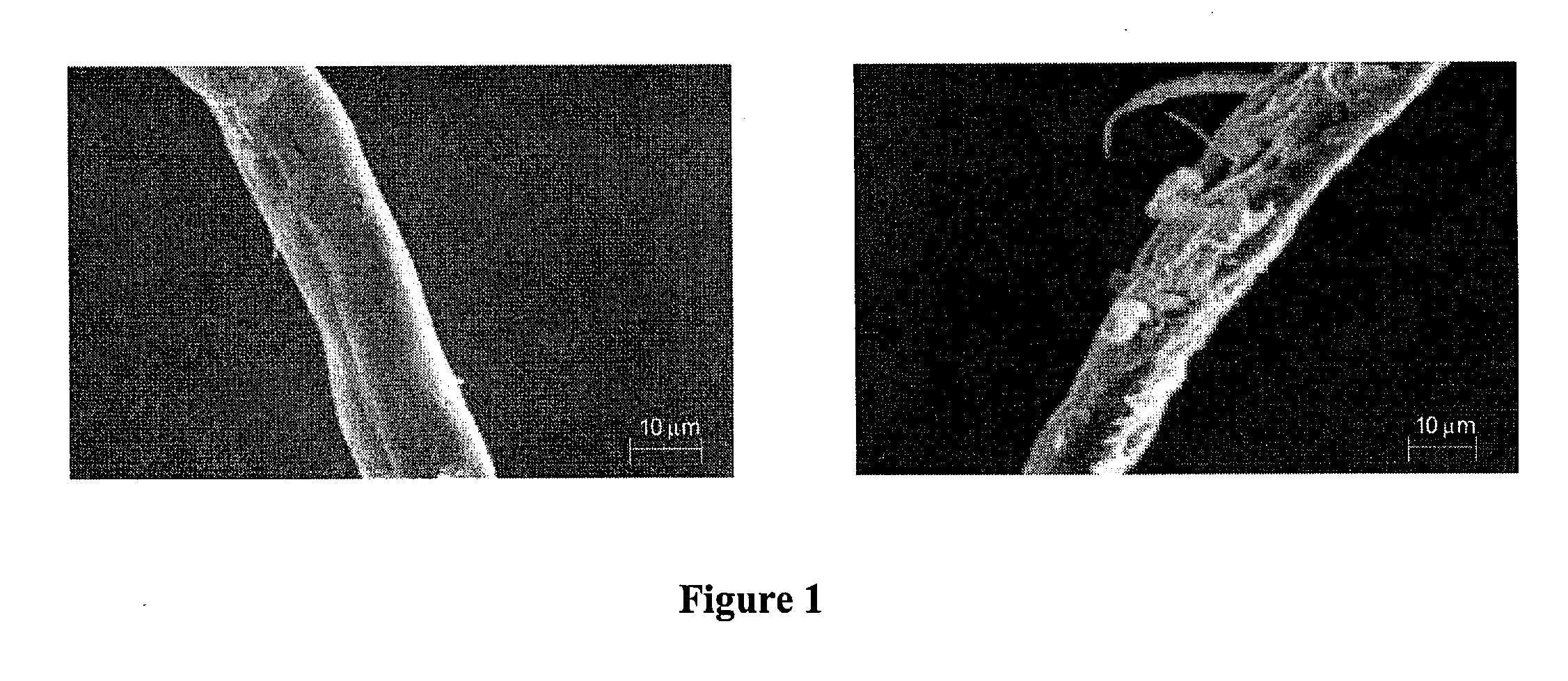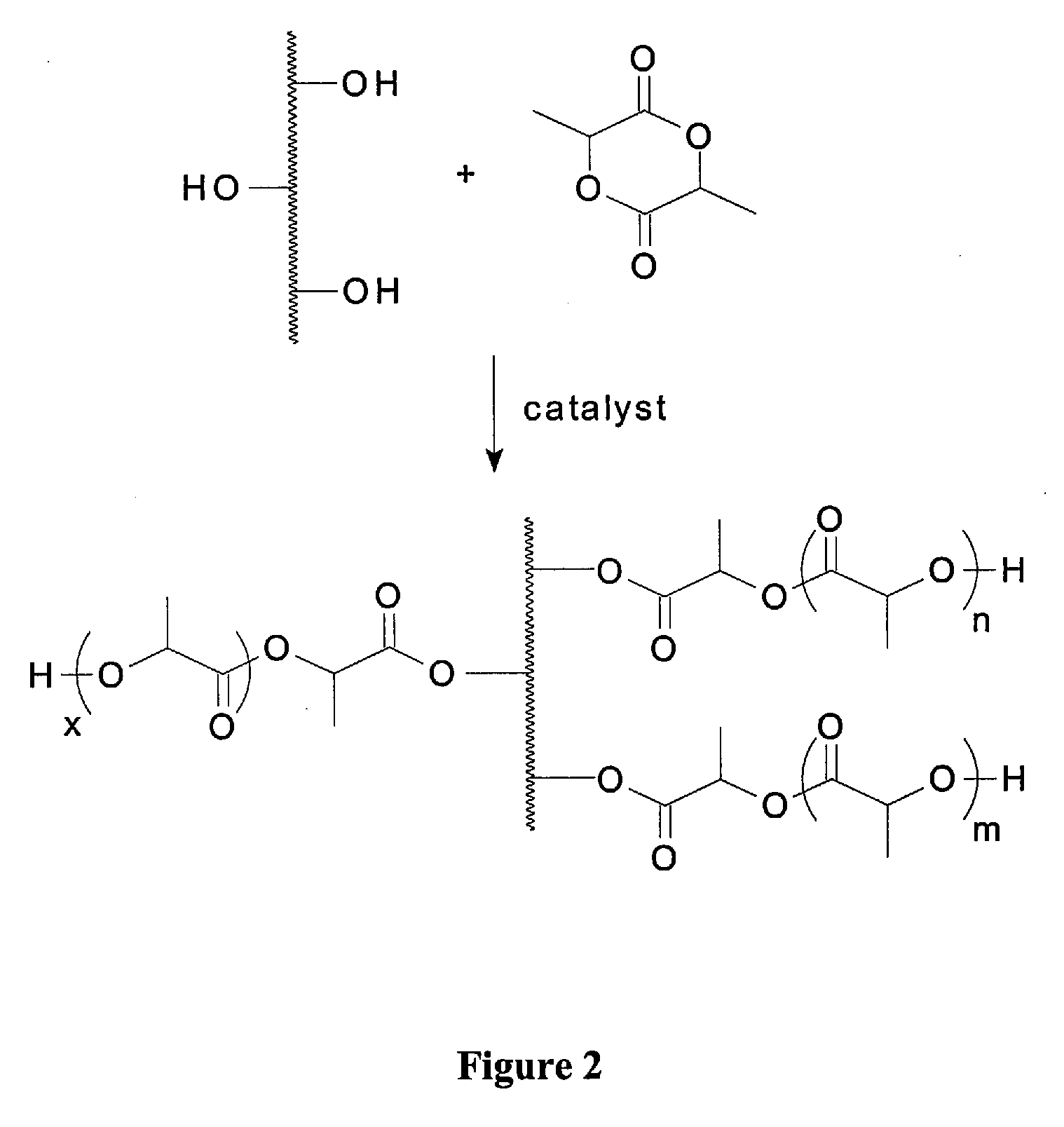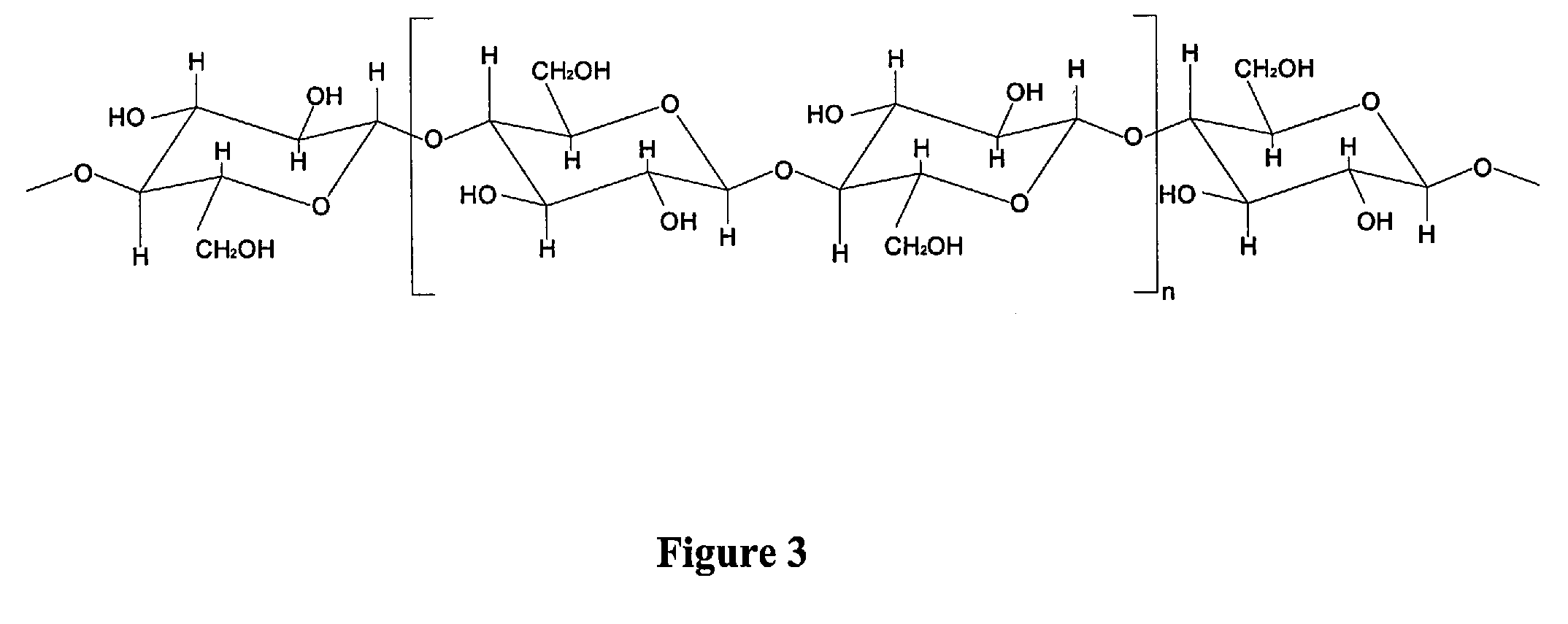High modulus polymer composites and methods of making the same
a polymer composite and high modulus technology, applied in the field of polymer composites, can solve the problems of lack of interfacial adhesion between the polymer matrix and the fiber surface, and achieve the effect of rapid and economically efficient ways of producing polymer composites
- Summary
- Abstract
- Description
- Claims
- Application Information
AI Technical Summary
Benefits of technology
Problems solved by technology
Method used
Image
Examples
examples
[0045]The methods of the present invention are exemplified here by the formation of a polylactic acid (PLA)-cellulose composite polymer formed by an interchange reaction including transesterification of the lactide by the PLA in the presence of a transesterification catalyst.
[0046]L-lactide and pre-formed polylactide (PLA) were purchased from Cargill Dow Polymers, now NatureWorks, (Minnetonka, Minn.) and used without further purification. Lactide was dried under vacuum (22 inch Hg) at 50° C. for at least 8 hours prior to use. PLA was dried under vacuum (25 inch Hg) at 80° C. for at least 14 hours before being processed.
[0047]The cellulose fibers used in this study (CreaTech TC 2500) were supplied by CreaFill Fibers Corp (Chestertown, Md.). These fibers have an average length of 900 μm and an average width of 20 μm (L:D ratio=45). In order to remove surface impurities and increase surface reproducibility, the fibers were pretreated according to the following procedure: 1) 10 g fibers...
PUM
| Property | Measurement | Unit |
|---|---|---|
| temperature | aaaaa | aaaaa |
| temperature | aaaaa | aaaaa |
| temperature | aaaaa | aaaaa |
Abstract
Description
Claims
Application Information
 Login to View More
Login to View More - R&D
- Intellectual Property
- Life Sciences
- Materials
- Tech Scout
- Unparalleled Data Quality
- Higher Quality Content
- 60% Fewer Hallucinations
Browse by: Latest US Patents, China's latest patents, Technical Efficacy Thesaurus, Application Domain, Technology Topic, Popular Technical Reports.
© 2025 PatSnap. All rights reserved.Legal|Privacy policy|Modern Slavery Act Transparency Statement|Sitemap|About US| Contact US: help@patsnap.com



